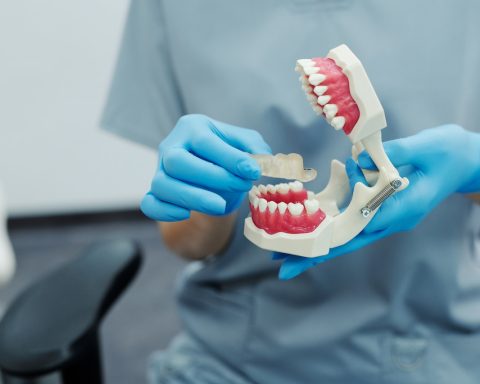Oral health is a critical component of overall well-being, and growing research suggests that the health of your mouth is closely connected to your body’s overall health. The mouth serves as a gateway to the body, and any issues or infections that begin in the oral cavity can impact other systems and organs. We will explore the intricate relationship between oral health and overall body health, shedding light on how taking care of your teeth and gums can benefit your well-being.
Relationship between oral health and overall body health
1. The Oral-Systemic Connection
The concept of the oral-systemic connection refers to the relationship between oral health and various systemic health conditions throughout the body. Researchers have discovered that the mouth can be a source of inflammation and infection that can contribute to or exacerbate various medical issues. For example, chronic gum disease, also known as periodontitis, is characterized by inflammation and infection of the gums and supporting structures of the teeth. The bacteria responsible for gum disease can enter the bloodstream through inflamed gum tissues, potentially affecting distant organs and systems.
2. Cardiovascular Health
Cardiovascular health is one of the areas most extensively studied concerning oral health. Research has found a connection between gum disease and an increased hazard of heart disease, stroke, and other cardiovascular conditions. The exact mechanisms are still being investigated, but it is believed that chronic inflammation and harmful oral bacteria in the bloodstream may contribute to the development of arterial plaque, expanding the risk of heart problems. Further, poor oral health has been linked with an increased risk of infective endocarditis, a rare but serious infection of the heart’s inner lining and valves. Individuals with preexisting heart conditions are particularly vulnerable to this risk.
3. Diabetes Management
The link between diabetes and oral health is bidirectional, with each condition potentially influencing the other. Individuals with diabetes are more prone to gum disease, and gum disease can make it more challenging to manage blood sugar levels. The inflammation associated with gum disease can cause insulin resistance, leading to poor glycemic control in diabetic patients. Conversely, uncontrolled diabetes can impair the body’s ability to fight infection, making individuals more susceptible to gum disease and other oral health issues. Thus, managing both diabetes and oral health is crucial for those living with this chronic condition.
4. Respiratory Health
Oral health can have implications for respiratory health as well. Poor oral hygiene can usher in the proliferation of harmful bacteria in the mouth, which may be inhaled into the lungs. This can contribute to respiratory infections, pneumonia, and exacerbate conditions like chronic obstructive pulmonary disease (COPD). Maintaining good oral health and reducing the bacterial load in the mouth can help minimize the risk of respiratory infections and enhance overall lung health, particularly in vulnerable populations like the elderly and individuals with compromised immune systems.
5. Pregnancy and Maternal Health
Oral health is of particular concern during pregnancy, as changes in hormonal levels can enhance the risk of gum disease and other oral health issues. Gum disease during pregnancy has been linked to adverse outcomes, including preterm birth and low birth weight. Pregnant individuals should prioritize their oral health, enclosing regular dental checkups and proper hygiene practices. Managing gum disease and other oral health issues during pregnancy can contribute to a healthier pregnancy and reduce the hazard of complications.
6. Kidney Health
Emerging research has also suggested a potential link between oral health and kidney health. Chronic kidney disease (CKD) is a paramount health concern worldwide, and individuals with CKD often have oral health issues, such as gum disease and tooth loss. The inflammation associated with gum disease may exacerbate kidney inflammation and contribute to the progression of CKD. While further research is needed to establish the exact nature of this connection, it underscores the importance of maintaining good oral health, especially for individuals at risk of kidney disease.
7. Arthritis and Joint Health
Some studies have indicated a potential association between gum disease and certain autoimmune diseases, including rheumatoid arthritis (RA). RA is characterized by chronic inflammation that affects the joints, but the inflammation in gum disease shares some similarities with RA inflammation. While the exact relationship between gum disease and RA is still being explored, some evidence suggests that the systemic inflammation triggered by gum disease may worsen the symptoms of RA. Managing oral health is a valuable component of a holistic approach to managing autoimmune conditions.
8. Cognitive Function
Emerging research has begun investigating the link between oral health and cognitive function, particularly in older adults. Some studies have suggested that individuals with poor oral health may be at an increased risk of cognitive decline and conditions like Alzheimer’s disease. The mechanisms underlying this connection are not yet fully understood, but it is believed that chronic inflammation and the presence of oral bacteria may contribute to cognitive impairment. Maintaining good oral hygiene may be paramount to preserving cognitive function as we age.
9. Immune System Function
The immune system is critical in maintaining overall health and protecting the body from infections and diseases. Chronic inflammation in the mouth, as seen in gum disease, can strain the immune system and divert resources away from fighting other infections or health threats. Conversely, a weakened immune system can make individuals more susceptible to oral infections and gum disease. This bidirectional relationship underscores the importance of oral health in supporting overall immune function and well-being.
The connection between oral and overall body health is a compelling reminder of the importance of caring for your teeth and gums. Neglecting oral health can have far-reaching consequences, potentially impacting various systems and organs throughout the body. You can promote oral health and overall well-being by prioritizing regular dental care from Dean Street Dental, maintaining good oral hygiene practices, and making healthy lifestyle choices. Practice stress management techniques like meditation or relaxation exercises to minimize stress-related oral health issues. Remember that oral health is integral to your overall health, and taking steps to care for your mouth can lead to a healthier and happier life.








